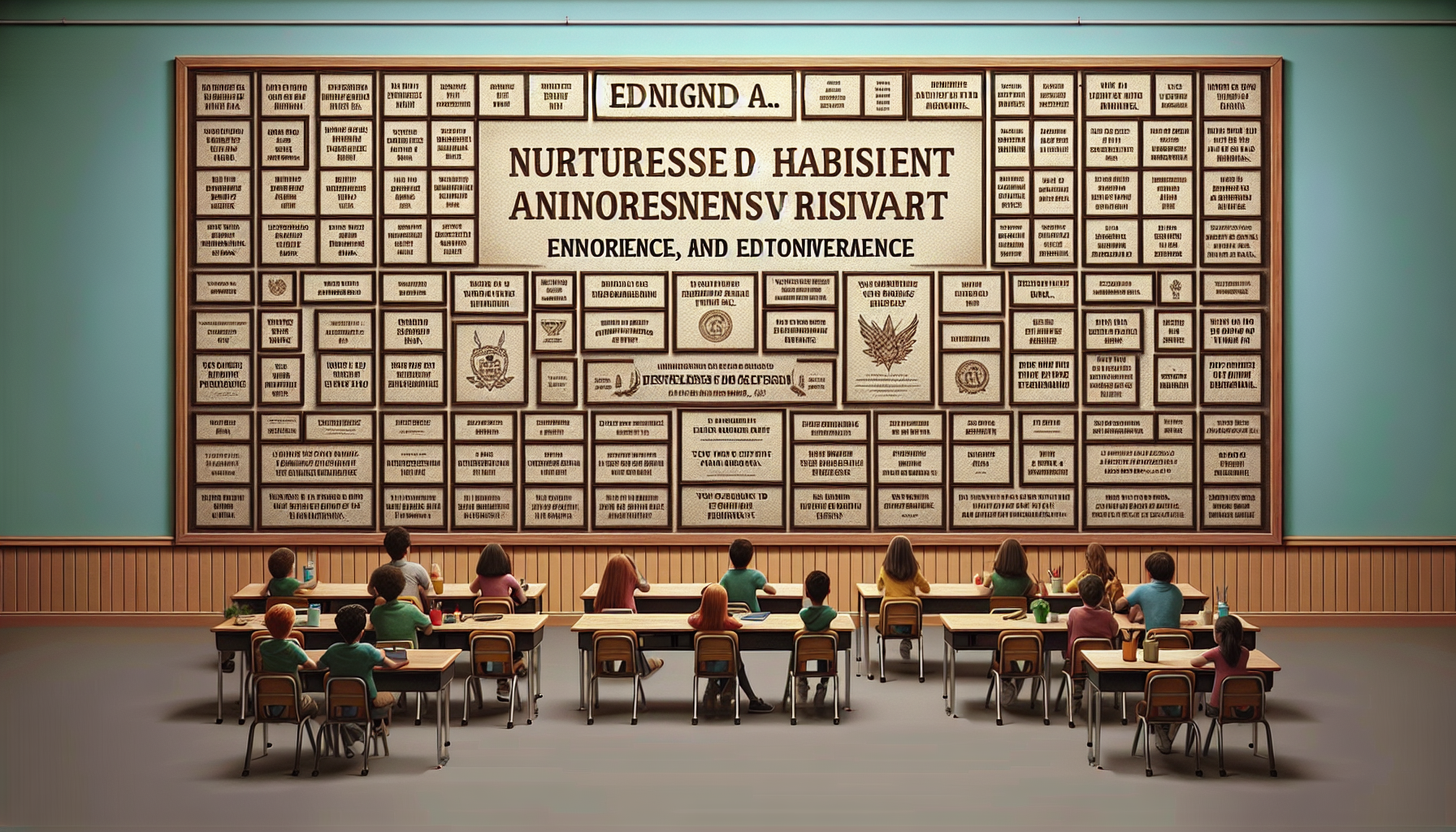Exploring the Role of a Substitute Teacher

When a regular teacher is absent, the substitute teacher's primary responsibility is to ensure that students continue their educational journey. They follow the lesson plans left by the teacher, which often include objectives for the day, specific activities, and assessment methods. This requires not only an understanding of the subject matter but also the ability to assess the needs of the students quickly. However, the reality is that not all lesson plans are detailed or comprehensive, requiring substitutes to adapt quickly to the classroom environment. In addition to delivering lessons, substitutes manage classroom behavior. This involves creating a respectful and productive atmosphere, which can be challenging when students are accustomed to a different teacher's style. Substitutes must take attendance, address immediate concerns, and ensure that all students are engaged and participating in the learning process. For instance, if a substitute is teaching a science class and the regular teacher leaves a plan that includes a lab experiment, the substitute must be prepared to facilitate that activity smoothly, ensuring safety protocols are followed.
Challenges Faced by Substitute Teachers
Substitute teaching is not without its challenges. One significant hurdle is the variability of classroom environments. Each day may bring a new school, different grade levels, and diverse student populations. Adapting to these changes requires flexibility and a quick understanding of various classroom dynamics. For example, a substitute might find themselves in a high school math class one day and a kindergarten art class the next, necessitating a wide range of teaching strategies and classroom management techniques. Building rapport with students in a limited timeframe can also be difficult. Many students may test the boundaries with a substitute, seeing them as an opportunity to push limits. This necessitates strong classroom management skills, as substitutes must establish authority while also being approachable and supportive. Additionally, the lack of familiarity with school policies and procedures can be overwhelming for substitutes, particularly those new to the role. They may find themselves navigating different rules regarding technology use, emergency protocols, or even the grading system without adequate guidance.
Rewards of Being a Substitute Teacher
Despite the challenges, substitute teaching offers numerous rewards. One of the most significant benefits is the opportunity to make a positive impact on students' lives, even if only for a day. Substitutes can inspire students through engaging lessons or provide support during difficult times, fostering a sense of community and belonging. For instance, a substitute who introduces a fun, interactive lesson on a challenging topic can leave a lasting impression and spark a student's interest in learning. The role also provides a unique vantage point into the education system. Substitutes gain firsthand experience in various classroom settings, which can help them identify effective teaching methods and strategies. This exposure can be invaluable for those considering a full-time teaching career, as it allows them to explore different educational philosophies and teaching styles. Furthermore, substitute teaching can serve as a flexible job option for individuals pursuing other interests or commitments. Many substitutes appreciate the ability to choose when and where they work, allowing them to maintain a work-life balance that suits their needs. This flexibility can be particularly appealing to college students, retirees, or those transitioning careers.
Skills Necessary to Succeed as a Substitute Teacher
To thrive as a substitute teacher, several key skills are essential: 1. **Adaptability**: The ability to adjust quickly to new environments, lesson plans, and student dynamics is crucial for success in this role. 2. **Strong Communication**: Effective communication skills help substitutes convey lessons clearly and engage students, as well as interact with school staff and administrators. 3. **Classroom Management**: Substitutes must be adept at managing student behavior and maintaining a productive learning environment, often employing various strategies to keep students focused. 4. **Problem-Solving**: The ability to think on one's feet and address unexpected challenges is vital. Substitutes often encounter situations that require quick and effective solutions, such as handling disruptive behavior or technology malfunctions. 5. **Empathy and Patience**: Understanding students' needs and maintaining patience, particularly in challenging situations, can help build rapport and foster a positive classroom atmosphere.
The role of a substitute teacher is both challenging and rewarding, offering a unique perspective on the educational landscape. While they face numerous obstacles, such as adapting to new classrooms and managing student behavior, substitutes also have the opportunity to make a meaningful impact and gain valuable experience. By embodying key skills such as adaptability, communication, and empathy, substitute teachers can not only navigate the complexities of their role but also enrich the educational experiences of the students they serve. As we continue to recognize the importance of education, it is essential to appreciate the invaluable contributions of substitute teachers in shaping the future of our children. For those interested in pursuing a career in education, networking on platforms like LinkedIn can be advantageous. Many educational institutions and organizations offer positions for substitute teachers, and exploring job titles such as "Substitute Educator," "Guest Teacher," or "Temporary Teacher" can lead to fulfilling opportunities in this vital field.
Instructional Coordinator
School districts, educational non-profits, and educational consulting firms
Core Responsibilities
Develop and implement educational programs and curricula tailored to the needs of students and teachers.
Collaborate with teachers to assess student progress and improve instructional methods.
Analyze data from standardized tests and assessments to inform curriculum adjustments.
Required Skills
Strong analytical and organizational skills to evaluate educational programs.
Excellent communication skills for effective collaboration with educators and stakeholders.
Knowledge of instructional design and educational technology.
Special Education Teacher
Public and private schools, special education centers, and charter schools
Core Responsibilities
Develop individualized education programs (IEPs) for students with disabilities.
Adapt lesson plans and teaching strategies to accommodate diverse learning needs.
Collaborate with parents, school staff, and therapists to support students’ educational goals.
Required Skills
Patience and empathy to effectively support students with varying abilities.
Strong advocacy skills to ensure students receive appropriate resources and support.
Familiarity with special education laws and best practices.
Educational Consultant
Educational consulting firms, non-profit organizations, and government agencies
Core Responsibilities
Provide expert advice to schools and educational organizations on curriculum development and instructional strategies.
Conduct professional development workshops for teachers on best practices in education.
Evaluate educational programs and provide recommendations for improvement.
Required Skills
Extensive knowledge of educational theories and practices.
Strong presentation and communication skills for training and advising educators.
Ability to analyze educational data and implement effective strategies based on findings.
Behavioral Interventionist
Schools, behavioral health organizations, and special education programs
Core Responsibilities
Develop and implement behavior intervention plans for students with behavioral challenges.
Work closely with teachers and administrators to create a supportive learning environment.
Monitor student progress and adjust interventions as necessary to promote positive behavior.
Required Skills
Understanding of behavioral management techniques and strategies.
Strong observational and analytical skills to assess student behavior.
Excellent interpersonal skills to build rapport with students and staff.
School Administrator (Assistant Principal)
K-12 public and private schools, charter schools, and educational organizations
Core Responsibilities
Assist in the development and implementation of school policies and procedures.
Support teachers in curriculum delivery and classroom management practices.
Address student discipline issues and promote a positive school climate.
Required Skills
Strong leadership abilities and experience in educational settings.
Excellent organizational and communication skills to manage various school functions.
Ability to analyze data and make informed decisions regarding school improvement.


